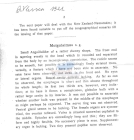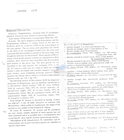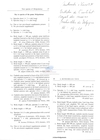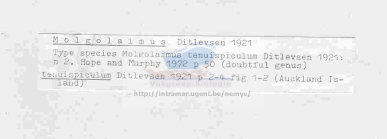RAS taxon details
Molgolaimus Ditlevsen, 1921
2343 (urn:lsid:marinespecies.org:taxname:2343)
accepted
Genus
- Species Molgolaimus tenuicaudatus (Allgén, 1959) Jensen, 1978
- Species Molgolaimus tenuilaimus (Allgén, 1932) Jensen, 1978
- Species Molgolaimus tenuispiculum Ditlevsen, 1921
- Species Molgolaimus demani Jensen, 1978 accepted as Microlaimus tenuispiculum de Man, 1922 (see Lorenzen (1981))
marine
Ditlevsen, H. (1921). Papers from Dr. Th. Mortensens Pacific Expedition 1914-16. III Marine free-living Nematodes from the Auckland and Campbell Islands. <em>Videnskabelige Meddelelser fra Dansk naturhistorisk Forening i Kjøbenhavn.</em> 73: 1-39. [details] 
Nemys eds. (2025). Nemys: World Database of Nematodes. Molgolaimus Ditlevsen, 1921. Accessed through: RAS (Eds.) (2025) Register of Antarctic Species at: https://ras.biodiversity.aq/aphia.php/www.pfeil-verlag.de/04biol/aphia.php?p=taxdetails&id=2343 on 2025-09-12
RAS (Eds.) (2025). Register of Antarctic Species. Molgolaimus Ditlevsen, 1921. Accessed at: https://ras.biodiversity.aq/aphia.php?p=taxdetails&id=2343 on 2025-09-12
Date
action
by
2004-12-21 15:54:05Z
created
db_admin
original description
Ditlevsen, H. (1921). Papers from Dr. Th. Mortensens Pacific Expedition 1914-16. III Marine free-living Nematodes from the Auckland and Campbell Islands. <em>Videnskabelige Meddelelser fra Dansk naturhistorisk Forening i Kjøbenhavn.</em> 73: 1-39. [details] 
taxonomy source Portnova, D. (2009). Free-living nematodes from the deep-sea Håkon Mosby Mud Volcano, including the description of two new and three known species. <em>Zootaxa.</em> 2096: 197–213., available online at http://www.mapress.com/zootaxa/2009/f/zt02096p213.pdf [details]
taxonomy source Jensen, P. (1978). Revision of Microlaimidae, Erection of Molgolaimidae fam.n., and Remarks on the Systematic Position of Paramicrolaimus (Nematoda, Desmodorida). <em>Zoologica Scripta.</em> 7(1-4): 159-173., available online at https://doi.org/10.1111/j.1463-6409.1978.tb00599.x [details] Available for editors
taxonomy source Kovalyev, V.; Tchesunov, A. V. (2005). Taxonomic review of microlaimids with description of five species from the white Sea (Nematoda: Chromadoria). <em>Zoosystematica Rossica.</em> 14(1): 1-16. [details] Available for editors
taxonomy source Fonseca, G.; Vanreusel, A.; Decraemer, W. (2006). Taxonomy and biogeography of Molgolaimus Ditlevsen, 1921 (Nematoda: Chromadoria) with reference to the origins of deep sea nematodes. <em>Antarctic Science.</em> 18(01): 23-50., available online at https://doi.org/10.1017/s0954102006000034 [details] Available for editors
basis of record Integrated Taxonomic Information System (ITIS). , available online at http://www.itis.gov [details]
additional source Brunel, P., L. Bosse & G. Lamarche. (1998). Catalogue of the marine invertebrates of the estuary and Gulf of St. Lawrence. <em>Canadian Special Publication of Fisheries and Aquatic Sciences, 126.</em> 405 pp. (look up in IMIS) [details] Available for editors
additional source Various Authors (2000). Nematode filing cabinet of the Marine Biology Section Ugent - in combination with the NemasLan Ms-Access database (published on CD-Rom, 2000) (look up in IMIS) [details]
additional source Zeppilli, D. & R. Danovaro (2009). Meiofaunal diversity and assemblage structure in a shallow-water hydrothermal vent in the Pacific Ocean. Aquatic Biology. 5(1):75-84., available online at https://doi.org/10.3354/ab00140 [details] Available for editors
additional source Brandt, A.; Gooday, A.J.; Brandão, S.N.; Brix, S.; Brökeland, W.; Cedhagen, T.; Choudhury, M.; Cornelius, N.; Danis, B.; De Mesel, I.; Diaz, R.J.; Gillan, D.C.; Ebbe, B.; Howe, J.A.; Janussen, D.; Kaiser, S.; Linse, K.; Malyutina, M.; Pawlowski, J.; Raupach, M.; Vanreusel, A. (2007). First insights into the biodiversity and biogeography of the Southern Ocean deep sea. <em>Nature.</em> 447 (7142): 307-311., available online at http://www.nature.com/nature/journal/v447/n7142/full/nature05827.html [details] Available for editors
additional source Copley, J. T. P.; Flint, H. C.; Ferrero, T. J.; Van Dover, C. L. (2007). Diversity of meiofauna and free-living nematodes in hydrothermal vant mussel beds on the northern and southern East Pacific Rise. <em>J. Mar. Biol. Ass. U.K.</em> [details] Available for editors
additional source Fonseca, G.; Vanreusel, A.; Decraemer, W. (2006). Taxonomy and biogeography of Molgolaimus Ditlevsen, 1921 (Nematoda: Chromadoria) with reference to the origins of deep sea nematodes. <em>Antarctic Science.</em> 18(01): 23-50., available online at https://doi.org/10.1017/s0954102006000034 [details] Available for editors
additional source Maria, T. F.; Esteves, A. M.; Smol, N.; Vanreusel, A.; Decraemer, W. (2008). Nematodes from sandy beaches of Guanabara Bay, Rio de Janeiro, Brazil. <em>Biociências, Porto Alegre.</em> 16 (2), 92-103. [details] Available for editors
additional source Miljutin, D. M.; Gad, G.; Miljutina, M. M.; Mokievsky, V. O.; Fonseca-Genevois, V.; Esteves, A. M. (2010). The state of knowledge on deep-sea nematode taxonomy: how many valid species are known down there?. <em>Marine Biodiversity.</em> 40(3): 143-159., available online at https://doi.org/10.1007/s12526-010-0041-4 [details] Available for editors
additional source Van Gaever, S.; Moodley, L.; De Beer, D.; Vanreusel, A. (2006). Meiobenthos at the Arctic Håkon Mosby Mud Volcano, with a parental-caring nematode thriving in sulphide-rich sediments. <em>Marine Ecology Progress Series.</em> 321: 143-155., available online at https://doi.org/10.3354/meps321143 [details] Available for editors
additional source Van Gaever, S.; Vanreusel, A.; Hughes, J.; Bett, B.; Kiriakoulakis, K. (1999). The macro- and micro-scale patchiness of meiobenthos associated with the Darwin Mounds (north-east Atlantic). <em>Journal of the Marine Biological Association of the UK.</em> 84(3): 547-556., available online at https://doi.org/10.1017/s0025315404009555h [details] Available for editors
additional source Vanreusel, A.; Van Den Bossche, I.; Thiermann, F. (1997). Free-living marine nematodes from hydrothermal sediments: similarities with communities from diverse reduced habitats. <em>Mar. Ecol. Prog. Ser.</em> 157: 207-219. [details] Available for editors
additional source Venekey, V.; Fonseca-Genevois, V.; Santos, P. J. P. (2010). Biodiversity of free-living marine nematodes on the coast of Brazil: a review. <em>Zootaxa.</em> 2568: 39–66. [details] Available for editors
additional source Gallucci, F.; Fonseca, G.; Soltwedel, T. (2008). Effects of megafauna exclusion on nematode assemblages at a deep-sea site. <em>Deep-sea Research I.</em> 55 (3): 32-349. [details] Available for editors
additional source Gobin, J. F. (2007). Free-living marine nematodes of hard bottom substrates in Trinidad and Tobago, West Indies. <em>Bulletin of Marine Science.</em> 81(1): 73–84. [details]
ecology source Ingels, J., K. Kiriakoulakis, G.A. Wolff & A. Vanreusel. (2009). Nematode diversity and its relation to the quantity and quality of sedimentary organic matter in the deep Nazaré Canyon, Western Iberian Margin. <em>Deep Sea Research Part I: Oceanographic Research Papers.</em> 56(9): 1521-1539. (look up in IMIS), available online at https://doi.org/10.1016/j.dsr.2009.04.010 [details]
ecology source Leduc, D.; Probert, P.; Nodder, S. (2010). Influence of mesh size and core penetration on estimates of deep-sea nematode abundance, biomass, and diversity. <em>Deep Sea Research Part I: Oceanographic Research Papers.</em> 57(10): 1354-1362., available online at https://doi.org/10.1016/j.dsr.2010.06.005 [details] Available for editors
ecology source Raes, M.; De Troch, M.; Ndaro, S. G. M.; Muthumbi, A.; Guilini, K.; Vanreusel, A. (2007). The structuring role of microhabitat type in coral degradation zones: a case study with marine nematodes from Kenya and Zanzibar. <em>Coral Reefs.</em> 26 (1): 13-126. [details] Available for editors
ecology source Raes, M.; Vanreusel, A. (2006). Microhabitat type determines the composition of nematode communities associated with sediment-clogged cold-water coral framework in the Porcupine Seabight (NE Atlantic). <em>Deep-Sea Research Part I.</em> 53 (12): 880-1894. [details] Available for editors
taxonomy source Portnova, D. (2009). Free-living nematodes from the deep-sea Håkon Mosby Mud Volcano, including the description of two new and three known species. <em>Zootaxa.</em> 2096: 197–213., available online at http://www.mapress.com/zootaxa/2009/f/zt02096p213.pdf [details]
taxonomy source Jensen, P. (1978). Revision of Microlaimidae, Erection of Molgolaimidae fam.n., and Remarks on the Systematic Position of Paramicrolaimus (Nematoda, Desmodorida). <em>Zoologica Scripta.</em> 7(1-4): 159-173., available online at https://doi.org/10.1111/j.1463-6409.1978.tb00599.x [details] Available for editors
taxonomy source Kovalyev, V.; Tchesunov, A. V. (2005). Taxonomic review of microlaimids with description of five species from the white Sea (Nematoda: Chromadoria). <em>Zoosystematica Rossica.</em> 14(1): 1-16. [details] Available for editors
taxonomy source Fonseca, G.; Vanreusel, A.; Decraemer, W. (2006). Taxonomy and biogeography of Molgolaimus Ditlevsen, 1921 (Nematoda: Chromadoria) with reference to the origins of deep sea nematodes. <em>Antarctic Science.</em> 18(01): 23-50., available online at https://doi.org/10.1017/s0954102006000034 [details] Available for editors
basis of record Integrated Taxonomic Information System (ITIS). , available online at http://www.itis.gov [details]
additional source Brunel, P., L. Bosse & G. Lamarche. (1998). Catalogue of the marine invertebrates of the estuary and Gulf of St. Lawrence. <em>Canadian Special Publication of Fisheries and Aquatic Sciences, 126.</em> 405 pp. (look up in IMIS) [details] Available for editors
additional source Various Authors (2000). Nematode filing cabinet of the Marine Biology Section Ugent - in combination with the NemasLan Ms-Access database (published on CD-Rom, 2000) (look up in IMIS) [details]
additional source Zeppilli, D. & R. Danovaro (2009). Meiofaunal diversity and assemblage structure in a shallow-water hydrothermal vent in the Pacific Ocean. Aquatic Biology. 5(1):75-84., available online at https://doi.org/10.3354/ab00140 [details] Available for editors
additional source Brandt, A.; Gooday, A.J.; Brandão, S.N.; Brix, S.; Brökeland, W.; Cedhagen, T.; Choudhury, M.; Cornelius, N.; Danis, B.; De Mesel, I.; Diaz, R.J.; Gillan, D.C.; Ebbe, B.; Howe, J.A.; Janussen, D.; Kaiser, S.; Linse, K.; Malyutina, M.; Pawlowski, J.; Raupach, M.; Vanreusel, A. (2007). First insights into the biodiversity and biogeography of the Southern Ocean deep sea. <em>Nature.</em> 447 (7142): 307-311., available online at http://www.nature.com/nature/journal/v447/n7142/full/nature05827.html [details] Available for editors
additional source Copley, J. T. P.; Flint, H. C.; Ferrero, T. J.; Van Dover, C. L. (2007). Diversity of meiofauna and free-living nematodes in hydrothermal vant mussel beds on the northern and southern East Pacific Rise. <em>J. Mar. Biol. Ass. U.K.</em> [details] Available for editors
additional source Fonseca, G.; Vanreusel, A.; Decraemer, W. (2006). Taxonomy and biogeography of Molgolaimus Ditlevsen, 1921 (Nematoda: Chromadoria) with reference to the origins of deep sea nematodes. <em>Antarctic Science.</em> 18(01): 23-50., available online at https://doi.org/10.1017/s0954102006000034 [details] Available for editors
additional source Maria, T. F.; Esteves, A. M.; Smol, N.; Vanreusel, A.; Decraemer, W. (2008). Nematodes from sandy beaches of Guanabara Bay, Rio de Janeiro, Brazil. <em>Biociências, Porto Alegre.</em> 16 (2), 92-103. [details] Available for editors
additional source Miljutin, D. M.; Gad, G.; Miljutina, M. M.; Mokievsky, V. O.; Fonseca-Genevois, V.; Esteves, A. M. (2010). The state of knowledge on deep-sea nematode taxonomy: how many valid species are known down there?. <em>Marine Biodiversity.</em> 40(3): 143-159., available online at https://doi.org/10.1007/s12526-010-0041-4 [details] Available for editors
additional source Van Gaever, S.; Moodley, L.; De Beer, D.; Vanreusel, A. (2006). Meiobenthos at the Arctic Håkon Mosby Mud Volcano, with a parental-caring nematode thriving in sulphide-rich sediments. <em>Marine Ecology Progress Series.</em> 321: 143-155., available online at https://doi.org/10.3354/meps321143 [details] Available for editors
additional source Van Gaever, S.; Vanreusel, A.; Hughes, J.; Bett, B.; Kiriakoulakis, K. (1999). The macro- and micro-scale patchiness of meiobenthos associated with the Darwin Mounds (north-east Atlantic). <em>Journal of the Marine Biological Association of the UK.</em> 84(3): 547-556., available online at https://doi.org/10.1017/s0025315404009555h [details] Available for editors
additional source Vanreusel, A.; Van Den Bossche, I.; Thiermann, F. (1997). Free-living marine nematodes from hydrothermal sediments: similarities with communities from diverse reduced habitats. <em>Mar. Ecol. Prog. Ser.</em> 157: 207-219. [details] Available for editors
additional source Venekey, V.; Fonseca-Genevois, V.; Santos, P. J. P. (2010). Biodiversity of free-living marine nematodes on the coast of Brazil: a review. <em>Zootaxa.</em> 2568: 39–66. [details] Available for editors
additional source Gallucci, F.; Fonseca, G.; Soltwedel, T. (2008). Effects of megafauna exclusion on nematode assemblages at a deep-sea site. <em>Deep-sea Research I.</em> 55 (3): 32-349. [details] Available for editors
additional source Gobin, J. F. (2007). Free-living marine nematodes of hard bottom substrates in Trinidad and Tobago, West Indies. <em>Bulletin of Marine Science.</em> 81(1): 73–84. [details]
ecology source Ingels, J., K. Kiriakoulakis, G.A. Wolff & A. Vanreusel. (2009). Nematode diversity and its relation to the quantity and quality of sedimentary organic matter in the deep Nazaré Canyon, Western Iberian Margin. <em>Deep Sea Research Part I: Oceanographic Research Papers.</em> 56(9): 1521-1539. (look up in IMIS), available online at https://doi.org/10.1016/j.dsr.2009.04.010 [details]
ecology source Leduc, D.; Probert, P.; Nodder, S. (2010). Influence of mesh size and core penetration on estimates of deep-sea nematode abundance, biomass, and diversity. <em>Deep Sea Research Part I: Oceanographic Research Papers.</em> 57(10): 1354-1362., available online at https://doi.org/10.1016/j.dsr.2010.06.005 [details] Available for editors
ecology source Raes, M.; De Troch, M.; Ndaro, S. G. M.; Muthumbi, A.; Guilini, K.; Vanreusel, A. (2007). The structuring role of microhabitat type in coral degradation zones: a case study with marine nematodes from Kenya and Zanzibar. <em>Coral Reefs.</em> 26 (1): 13-126. [details] Available for editors
ecology source Raes, M.; Vanreusel, A. (2006). Microhabitat type determines the composition of nematode communities associated with sediment-clogged cold-water coral framework in the Porcupine Seabight (NE Atlantic). <em>Deep-Sea Research Part I.</em> 53 (12): 880-1894. [details] Available for editors
 Present
Present  Inaccurate
Inaccurate  Introduced: alien
Introduced: alien  Containing type locality
Containing type locality



